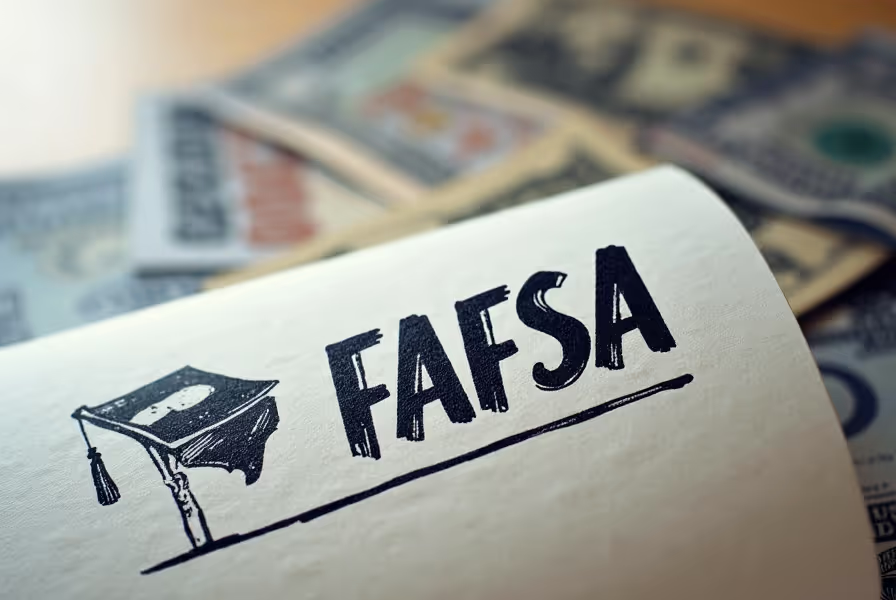Understanding FAFSA Deadlines and Why Timing Matters
If you want federal student aid to help pay for college, submitting the FAFSA (Free Application for Federal Student Aid) is your first step. But you might wonder, “When should I apply for FAFSA?” Knowing the right time to submit your FAFSA can have a big impact on the amount and types of financial aid you receive.
What Is FAFSA and Why Is It Important?
FAFSA is a free application provided by the U.S. Department of Education. It determines your eligibility for federal financial aid, including grants, work-study programs, and student loans. Many states and colleges also use your FAFSA information to decide on state and school-based aid, like scholarships and grants.
When Does the FAFSA Open?
Each year, the FAFSA becomes available for the next academic year. For the 2024-2025 school year, the FAFSA opened on December 31, 2023, due to changes in the system. Normally, the FAFSA opens on October 1 every year. Keep this key date in mind for future applications.
- FAFSA for 2024-2025: Opened December 31, 2023
- Typical Opening for Future Years: October 1
How Soon Should You Apply for the FAFSA?
The best advice is to submit your FAFSA as soon as possible after it opens. Many types of financial aid are awarded on a first-come, first-served basis. This includes some federal grants, state aid, and institutional scholarships. Waiting too long could result in missing out on free money for college.
- Apply early to maximize your aid potential.
- Some aid programs have limited funds.
- Early filing can give you peace of mind and more time to compare offers from different schools.
Understanding Federal, State, and College FAFSA Deadlines
There are three types of deadlines to keep track of when applying for FAFSA:
- Federal FAFSA deadline: This is the last possible date you can submit the FAFSA for the school year. For 2024-25, it is June 30, 2025.
- State FAFSA deadline: State-sponsored aid has its own deadlines, which may be much earlier than the federal deadline. Many states run out of grant funds quickly, so check the deadline for your state.
- College or university FAFSA deadline: Every school sets its own priority deadline for institutional aid like scholarships. These can come before state and federal dates.
To get the most aid possible, you should file your FAFSA at least a few weeks before the earliest deadline that applies to you—typically your college’s priority deadline or your state’s deadline.
How Do FAFSA Deadlines Affect Financial Aid?
Missing a FAFSA deadline can limit your financial aid options. Federal student loans are often still available, but you might miss out on:
- Pell Grants
- Federal Supplemental Educational Opportunity Grants (FSEOG)
- State financial aid programs
- College-specific scholarships and grants
Some aid is first-come, first-served. The sooner you file, the better your chances of receiving the most generous packages.
How to Prepare for Your FAFSA Application
Getting ready early will help you complete the FAFSA quickly after it opens. Here’s how you can prepare:
- Know your opening date (October 1 for most years).
- Gather important documents—Social Security numbers, tax returns, bank statements, and records of untaxed income.
- Create an FSA ID for yourself and one for a parent, if you are a dependent student.
- List the schools you are considering, even if you have not applied or been accepted yet.
When you apply online at studentaid.gov, your information is sent to the schools you selected. They will use your data to determine your eligibility for need-based aid.
What Happens If You Apply for FAFSA Late?
If you wait until later in the application window:
- Your access to grants and need-based awards may be limited.
- Your financial aid package might be smaller than it could have been.
- You may have to rely more on loans and less “free money.”
- State or school deadlines may have already passed, ruling you out for special aid programs.
Applying early keeps your options open and helps your college financial aid office process your paperwork faster. This reduces stress as you finalize your plans for college expenses.
Frequently Asked FAFSA Questions
Can you apply for FAFSA before applying to college?
Yes, you can submit your FAFSA before you have applied to or been accepted by any colleges. List all the schools you are considering. They will receive your financial aid information once you are admitted.
What happens if you submit FAFSA after the priority deadline?
Submitting after the priority deadline may limit your options for state and institutional aid. You can still receive federal student loans and Pell Grants if eligible, but many need-based grants and scholarships run out of funds early.
Do you need your parents’ taxes to file the FAFSA?
If you are a dependent student, you need your parents’ tax information from two years prior (the “prior-prior year”). Independent students use their own (and if married, their spouse's) tax info.
Is there an income limit to qualify for FAFSA?
There is no income cut-off to apply for FAFSA. Every student should file, as income is only one factor in determining your eligibility for financial aid. Other factors include family size and the number of family members in college.
Tips for Filing FAFSA for First-Year and Returning Students
Whether you are applying to college for the first time or returning, keep these FAFSA filing strategies in mind:
- Submit your FAFSA as soon as it opens (October 1 in most years).
- Check deadlines for each college and your state.
- Update your FAFSA every year you are in college to stay eligible for aid.
- Contact your college’s financial aid office if you have questions about your personal situation or need help with the application.
Planning ahead and acting early are key steps to getting as much financial aid as possible for your college education.











.svg)



